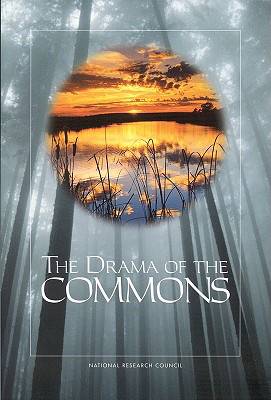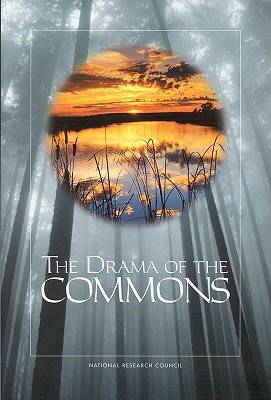
Bedankt voor het vertrouwen het afgelopen jaar! Om jou te bedanken bieden we GRATIS verzending (in België) aan op alles gedurende de hele maand januari.
- Afhalen na 1 uur in een winkel met voorraad
- In januari gratis thuislevering in België
- Ruim aanbod met 7 miljoen producten
Bedankt voor het vertrouwen het afgelopen jaar! Om jou te bedanken bieden we GRATIS verzending (in België) aan op alles gedurende de hele maand januari.
- Afhalen na 1 uur in een winkel met voorraad
- In januari gratis thuislevering in België
- Ruim aanbod met 7 miljoen producten
Zoeken
The Drama of the Commons
National Research Council, Division of Behavioral and Social Sciences and Education, Committee on the Human Dimensions of Global Change
Paperback | Engels
€ 66,95
+ 133 punten
Omschrijving
The "tragedy of the commons" is a central concept in human ecology and the study of the environment. It has had tremendous value for stimulating research, but it only describes the reality of human-environment interactions in special situations. Research over the past thirty years has helped clarify how human motivations, rules governing access to resources, the structure of social organizations, and the resource systems themselves interact to determine whether or not the many dramas of the commons end happily. In this book, leaders in the field review the evidence from several disciplines and many lines of research and present a state-of-the-art assessment. They summarize lessons learned and identify the major challenges facing any system of governance for resource management. They also highlight the major challenges for the next decade: making knowledge development more systematic; understanding institutions dynamically; considering a broader range of resources (such as global and technological commons); and taking into account the effects of social and historical context. This book will be a valuable and accessible introduction to the field for students and a resource for advanced researchers.
Specificaties
Betrokkenen
- Auteur(s):
- Uitgeverij:
Inhoud
- Aantal bladzijden:
- 533
- Taal:
- Engels
Eigenschappen
- Productcode (EAN):
- 9780309082501
- Verschijningsdatum:
- 15/03/2002
- Uitvoering:
- Paperback
- Formaat:
- Trade paperback (VS)
- Afmetingen:
- 155 mm x 225 mm
- Gewicht:
- 852 g

Alleen bij Standaard Boekhandel
+ 133 punten op je klantenkaart van Standaard Boekhandel
Beoordelingen
We publiceren alleen reviews die voldoen aan de voorwaarden voor reviews. Bekijk onze voorwaarden voor reviews.









